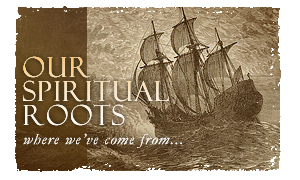By Rose Weiner 4/90
It was a balmy day. The wind blew gently through the
fields of newly ripened grain. Smells from the fragrant
meadows waved abroad delighting the senses. The garners
were overflowing with bountiful crops of fruits and
vegetables which had already been harvested. Flocks
of sheep grazed peacefully on the hillside, dotting
the landscape with their snowy white fleece.
On the threshing floor two brothers worked side by side each building a stone altar. Throughout their boyhood they had been inseparable companions as they played together in the streams and waterfalls and investigated the woodlands. They had laughed at the porcupine's quills and the kangaroo's funny hop. With great exuberance they had climbed trees to play with the baby monkeys and had flung themselves onto the backs of the zebra making a game of who could stay on the longest. The animals had been some of their dearest friends, for during their lifetime the fear of man had not yet fallen on these creatures. Together they had marveled as they caught beautiful butterflies and held newly hatched birds in the palm of their hands while their mother brought assortments of bugs and worms to feed her new offspring.
It was not so long ago that these boys had walked together through the woods sharing their hopes and dreams of the future. It was during their boyhood that the world was young and so very, very beautiful. In fact they were the first two little boys to ever be born on the earth. Their mother Eve had named the first son Cain. It was her hope that this son would be the Savior God had promised to send who would deliver them from the curse of sin and lead the family back to their Eden home. She had named her second son Abel. Both boys were the delight of their parents hearts and brought them such joy and gladness that it helped Adam and Eve bear up under their sorrow at the loss of Eden and the intimate fellowship with God that they had once known.
Among their mother's most treasured memories were the times in Eden - stories that the boys knew by heart. They had heard all about the loving Creator and of the devil's temptation. They learned how Eve and Adam had fallen for the tempter's snare and lost their garden paradise, their beautiful garments of light, the joy of living in the smile of their Heavenly Father's Presence, and the privilege of beholding His glory. They had heard about the Angel with the flaming Sword which had been sent to guard the way to the Tree of Life to keep them from partaking of it in their sin.
But among their most favorite was the story about God's promise that one day, one of Eve's children would crush the serpent's head, break the power and the curse of their sin and disobedience and bring them back into a right relationship with God. Eve had told Cain many times that it was her hope that he was that child. Even his name signified that belief. Their mother and father had told them that right before they had turned with great heartbroken sobs to walk out of the garden into the night that God had slain several of the beautiful innocent lambs of paradise to make clothes for them to cover their sin and nakedness.
As one of their precious animals was slaughtered, Adam and Eve had begun to learn just what sin was going to cost the world. It was at that time that God had instituted the first blood sacrifice. This sacrifice and offering, the boys were taught, was to be made to God whenever they desired for their sins to be covered and forgiven. It was to represent all the faith and hope they had in the coming One who would bring salvation, forgiveness of sins, and right relationship with God. Without the shedding of blood the boys understood there could be no forgiveness of sin. They didn't exactly understand why, but that was what God had said and they were taught that man was to obey God whether his mind understood it or not. They were reminded often by Adam and Eve just what disobedience to God's commands had cost them.
Now that they both had grown up, Abel had become a keeper of the sheep and Cain had become a tiller of the ground. Thankful for the bountiful harvest and the increase of the flock, each brother labored to build his altar to the Lord to make an offering unto God. Cain, however, had decided to break away from the traditional offering of a slain lamb. Abel was a keeper of the sheep and he was tired of asking his brother for a lamb to sacrifice for his sins. Besides, what had he really done that was sinful?
Instead, he wanted to offer something he had worked hard to produce, something that he had poured out all the energy of his life to obtain God's approval. Something that would be a real sacrifice. Lost in thought Cain rationalized, all Abel does is lead those sheep around to green pastures and guide them beside streams of water, then he just sits down and plays his flute. But I have to bring forth the fruit of the ground through the sweat of my brow. I have to plow, plant, weed, water and harvest.
So Cain brought an offering of the fruit of the ground to the Lord. All these fruits and nuts and vegetables represent my sweat, toil, and labor, he reasoned. Surely God will look upon this offering and be pleased and I will gain favor in His sight above my brother Abel.Abel, on the other hand, stuck with God's prescription. He dared not do anything else, for since a child his heart had been full of respect and fear toward God. He chose his very best lamb and offered it to the Lord according to God's instruction to his mother and father. As both men knelt before their altars praying, fire fell from heaven and consumed Abel's offering, but God had no regard for Cain's offering. When Cain saw that his offering was not accepted, he was filled with rage against his brother. His countenance became disfigured with angry looks. How can God bless such a lazy scoundrel? I spend untold hours sweating it out in the hot sun while my brother spends most of his time under cool shade trees resting.
It was then that God spoke to Cain and said, "Cain, why are you angry? Why is your countenance clouded? If you will offer a lamb, I will accept your offering, too. If you do what is right and obey my commands and offer to Me what I have asked for instead of what you think is best, you will do well and be blessed. But if you will not obey, sin stands at your door to take you captive. It's desire is for you, but you must rule over it."
Brushing aside the gentle voice of God's Spirit, Cain got up from the ground and went over to talk with his brother Abel. "You smart alec," Cain said. "I saw that smirk on your face when God accepted your offering instead of mine. You think you are better than me don't you? Don't you realize who I am? I am the one who will probably deliver this family from sin and evil. Even mother thinks so. And with that Cain began to push Abel, call him names, and accuse him falsely. Cain soon became so enraged that he picked up a stone from Abel's altar and hit Abel on the head as hard as he could. Abel's body suddenly became limp and fell to the ground.
When Cain saw his brother fall he rushed over to see what had happened, for he had never seen a man die before. The truth suddenly dawned upon him that Abel was dead. Fear and anguish filled his heart as he fled from his parents and the face of God. Thus the world's first baby became the world's first murderer.
As Adam and Eve sorrowfully knelt over the body of their dead son, they began to realize the depravity into which the human race had fallen. The price they and their children were to pay for sin and disobedience had just begun to take its toll.Looking forward to God's promised Seed who would one day take away the sins of the world, Abel humbly in faith had made his sacrifice. Cain, on the other hand, totally disregarded God's direction. He thought God would be pleased with all his hard work and effort and that it would satisfy His Divine Justice.
The story of Cain and Abel is at best the story of true faith versus religion. Faith, as A.W. Tozer so eloquently put it is "The gaze of the soul on a saving God." Religious zeal, in contrast, can be great while, at the same time, God can be totally disobeyed as self-will rules the heart. Jesus told the Pharisees, "You search the Scriptures because in them you think you have eternal life; and it is these that bear witness of Me; and you are unwilling to come to Me, that you may have life."1
Religious flesh may focus its attention on knowing the Book of the Lord while experiencing no real fellowship with the Lord of the Book. Jeanne Guyon observed over three hundred years ago, "Other people - more gifted, better educated, trained in theology - are cramped and even blinded by their spiritual wealth. Such a person very often offers greater resistance to the inner anointing and the leading of the Lord's Spirit."2
Those who are more simple believers while perhaps lacking a great deal of religious training "are not so accustomed to analyzing; they do not have the habit of discussing the issues of everything; and they are quick to let go of their own opinions."3
The flesh can be most willing and diligent in its service to God. It can work day and night in great personal sacrifice. It can devise wonderful observances and great pageantry to make worshiping God pleasing and attractive and yet may be only what Paul calls "making a fair show in the flesh," a glorying in man's will and efforts. The power of the religious flesh is one of the great marks of the Old Covenant religion. It misses that which Abel's simple worship and obedience was a foreshadowing of - a heart and life entirely dependent upon God.4The true spiritual life is that which brings us every day nearer to this God we serve and makes us forsake everything to have more of Him. God's one object is to draw us to Himself. If our religion does not do that it is just religion.
As in the case of Cain, religious flesh and sinful flesh flourish side by side. A person can be making a good religious show and at the same time bite and devour others, be full of bitterness, envy, hatred, and other sins. Saul of Tarsus who later became the apostle Paul after his encounter with the Resurrected Christ, testified that he had a zeal for God that led him to persecute, imprison, and murder Christians, but this was a zeal that was not according to the true knowledge of God.
In explaining the self righteousness of religious flesh, Jesus told about the Pharisee who went down to pray trusting in himself that he was righteous, boasting that he fasted twice a week and paid tithes. Viewing a tax collector with contempt who was praying nearby, he despised him. But the tax-collector, understanding his great need for God's mercy, was unwilling to even lift up his eyes to heaven, but rather beat his breast and cried out, "God be merciful to me a sinner." "I tell you," Jesus said, "That tax-gatherer went down to his house justified rather than the other man." Why? Because the inward gaze of his soul was fixed on a saving God, not on his own deeds of righteousness.
It is possible to be rightly related to the church, be a faithful member, pay tithes regularly, participate in all the campaigns of the church, never cause the pastor any concern or trouble and have a heart that is far from God. Why? Because the gaze of the soul is being focused on external performance and adaptation to form, rather than on Jesus being formed within. It is possible to be a Christian and still be filled with dead religion and a righteousness based on compliance to written commandments and religious works instead of a righteousness based on a living relationship with God.
The Galatian Christians found this to be true. While they had been justified by faith, they were seeking to be sanctified by works. They were looking to the observance of the law for the maintenance and growth of their Christian life. They did not realize that the progress of their Christian life depended on receiving strength and life each day from fellowship with Christ alone, obeying His word spoken to their heart and being led by his Holy Spirit.
Andrew Murray writes, "Many Christians still walk in Old Covenant bondage. Regarding the law as a Divine ordinance for our direction, they consider themselves prepared and fitted by conversion to take up the fulfillment of the law as a natural duty. They know not that, in the New Covenant, the law written in the heart needs an unceasing faith in a Divine power, to enable us by a Divine power to keep it. They cannot understand that it is not to the law, but to a Living Person, that we are now bound, and that our obedience and holiness are only possible, by the unceasing faith in His power ever working in us."5
The Old Covenant was given for man to prove what his human nature and natural efforts could accomplish with the aid of outward instructions, miracles, and grace. Under this Covenant man was to realize his hopeless captivity under the power of sin and the utter impossibility of his own efforts to change himself. Then in the fullness of time the New Covenant was instituted through the death and resurrection of Jesus in which God would reveal to man that his true liberty from sin and self, his true Christ-likeness would be found in entire and absolute dependence in God being and doing all within him as man sought Him daily and endeavored to be obedient to the voice of His Holy Spirit within their heart.
We see Jesus demonstrating the New Covenant and His absolute dependency upon His Father as He always drew aside to fellowship with His Father through prayer. It was in these times of fellowship that He learned what his Father was doing and He said, "I do nothing on My own initiative, but I speak these things as the Father taught Me. The Son can do nothing of Himself unless it is something He sees the Father doing; for whatever the Father does, these things the Son also does in like manner. I can do nothing on My own initiative. As I hear, I judge; and My judgment is just, because I do not seek My own will, but the will of Him who sent Me."6 It is an impossibility to walk in the New Covenant life and to omit drawing aside for prayer and fellowship with God.
Observing the tendency of Christians to walk in Old Covenant bondage, Jeanne Guyon writes, "Burdening the new Christian with countless rules and all sorts of standards does not help him grow in Christ. If a new convert were introduced to real prayer and to a true inward experience of Christ as soon as he became converted, you would see countless numbers of converts go on to become true disciples. Consider the results: We would see the simple farmer, as he plowed his field, spend his days in the blessing of the presence of God. The shepherd, while watching his flocks, would have the same abandoned love for the Lord which marked the early Christians. The factory worker, while laboring with his outward man, would be renewed with strength in his inner man.
It is in the Lord gaining your heart, and no other way, that your sins can be put away. If the heart could be gained, Jesus Christ would reign in peace, and the whole church would be renewed. It is this very thing that caused the early church to lose its life and beauty. It was the loss of a deep, inner, spiritual relationship to Christ. But the church could soon be restored if this inner relationship were recovered. The simplest can know Him, and in the deepest way, with no help from rituals or forms or theological instruction. When it pleases Him, He turns factory workers into prophets. No, He has not turned man away from the inner temple of prayer. The opposite is true. He has thrown wide open those gates so that all may come in."7
As in the house of Abraham both Isaac and Ishmael dwelt, so it is in the church today. One son was after the flesh and the will of man. The other son after the promise and the power of God. Some are content with the mingled life, half flesh and half spirit, half self-effort and half grace. Others are not content with this, but are seeking with their whole heart to know to the full what the deliverance from sin and what the abiding full power for a walk in God's presence is, which the New Covenant has brought and can give. May God help us all to be satisfied with nothing less.8
In short, no one can escape the Old Covenant bondage completely until they realize that self is incurably evil and must die. The law is a school master to bring us to Christ. The one who realizes self's impotence, sinks before God and surrenders to His work, accepting death with Christ on the cross as what he truly deserves is alone prepared to be led by the Holy Spirit into full enjoyment of the New Covenant.
The Old Covenant of law and self effort has ended in condemnation and death and makes a complete end of all self effort. The New Covenant is coming to give, in all whom the law has slain, the law written in the heart, the indwelling of the Spirit, and God working to will and to do. As we lie in the grave, "The God of peace, who brought from the dead that great Shepherd of the sheep, even our Lord Jesus, will make you perfect in every good thing to do His will, working in you that which is pleasing in His sight, through Jesus Christ."9
Copyright © Bob and Rose Weiner 2007 All Rights Reserved
1. John 5:40 2. Jeanne Guyon, Experiencing the Depths
of Jesus Christ, Copyright by Gene Edwards, Christian
Books Pub. House, P.O. Box 3368, Auburn, ME 04212.
3. Ibid.
4. Andrew Murray, The Two Covenants, Christian Literature
Crusade, Fort Washington, Penn. 19034, p. 40-41 5.
Andrew Murray, p. 40
6. John 5:19,30; John 8:14-28 7. Jeanne Guyon, Ibid
8. Murray, p.17 9. Hebrews 11:20-21











